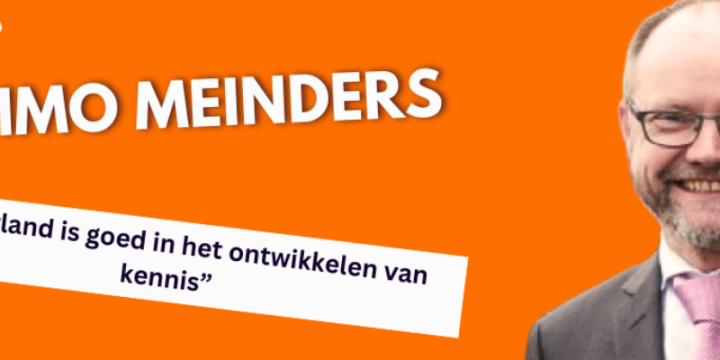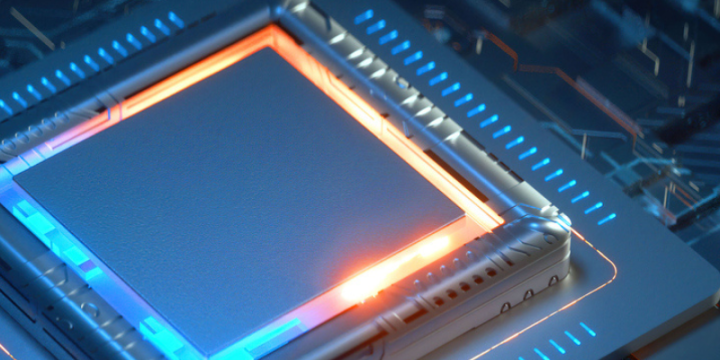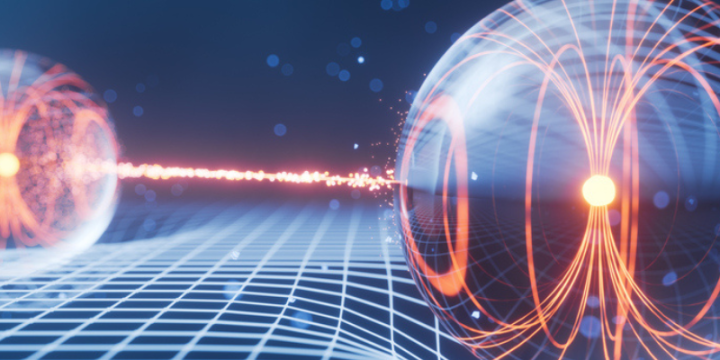In the podcast series that we make in collaboration with IO+: 'The people of Holland High Tech', you get to know the people of Holland High Tech (the top sector High Tech Systems and Materials). Quantum, sustainable mobility. High-tech plays an increasingly important role in our daily lives. Today we interview Peter Stolk: the new chairman of Holland High Tech. With his roots in top companies such as ASML and Philips, he understands better than anyone the challenges the Netherlands faces, and how the high-tech sector can make a positive contribution to them. According to Stolk, it is time for us to step out of our bubble, both innovatively and socially.
Podcast Peter Stolk
Listen to the podcast via Spotify
How would you describe yourself in one word?
“Enthusiastic. I find many things interesting. That can be sports, music, or socializing with family and friends. And - I learned this from home - I don't like half measures. When I go for something, I do it with heart and soul.”
Is that enthusiastic attitude also reflected in your work life?
“Absolutely. In my 35 years of work experience, I have noticed that I get very enthusiastic about three things. First of all: technology. I studied physics and have a PhD. Secondly, I like working together, I couldn't work alone in an attic room. And finally, I notice that I find it increasingly important that the market and society are closely involved in projects that I carry out. When these three elements come together, I get enthusiastic.”
You have worked at Philips and ASML, among others. What lessons did you learn there?
“What I learned most of all is: innovation is not a one-man show. I can best explain that using a sports watch from about 15 years ago. This is the first watch that can measure heart rate with an optical sensor. At the time, I worked at Philips Corporate Technologies and headed a department that brought together all kinds of technologies that were relevant to developing this product. Philips had the knowledge and experience in the field of medical technology, but it is a different story to integrate such an optical measuring method into a watch and if it also has to work while running. We put together a team that brought together all the knowledge; people with knowledge of sensors, optics and signal processing. And, very importantly: the end customer, the company that wanted to bring this watch to the market. In short: I learned that it is very important to keep the links in the chain as close together as possible.”
Over the years, you have probably learned a lot about the challenges that the Netherlands is facing.
“We are indeed facing major challenges. Take achieving our climate goals, for example. Or congestion on the electricity grid and information security. Technology and innovation play a crucial role in many of these domains. For example: in the field of data security, quantum encryption can make an important contribution. In terms of energy efficiency: data centers consume a lot of energy, especially because AI applications require a lot of computing power and data processing. That is why alternatives are being looked at, such as neuromorphic computing, an approach that is more efficient and more similar to the way our brains work, which is more energy efficient.”
You are succeeding Marc Hendrikse at Holland High Tech. What do you see as your most important mission?
“I hope to be able to contribute something to the BV Nederland. The mission is to ensure that resources are optimally deployed and spent in the sector. The Hague makes around €50 million available annually for the high-tech sector. Holland High Tech ensures that this money ends up with the right consortia of knowledge institutions and public and private parties, from SMEs to large companies. That is one very important role.
In addition, I also see it as my mission to make Holland High Tech recognizable in the Netherlands. After all, we have a connecting function and want to bring together as many parties as possible.”
You have started working hard in the first 100 days of this new role. What is on the agenda for the coming period?
“During the many interesting introductory talks, I naturally learn more about what is happening in the Netherlands. At the end of March, Hannover Messe will take place, where I will be hosting the Dutch pavilion. This is important for the visibility of our country abroad. I will also be joining a number of trade missions in May that will take place in the context of the World Expo in Osaka. And I am affiliated with Semicon Board NL, which was established in January. It is great to be able to promote the international knowledge and innovation interests of the Netherlands.”
Do you have a message for the reader?
“With innovation, it is very important to look beyond your own discipline and seek cooperation. That is exactly what we achieve with Holland High Tech. What I worry about is that people increasingly live in their own bubble. While it is also important to look beyond the borders and see the broader perspective. That applies to innovation, but also to society in general. I hope that we can continue to take steps together. It may sound like a somewhat edifying message, but it is close to my heart.”





